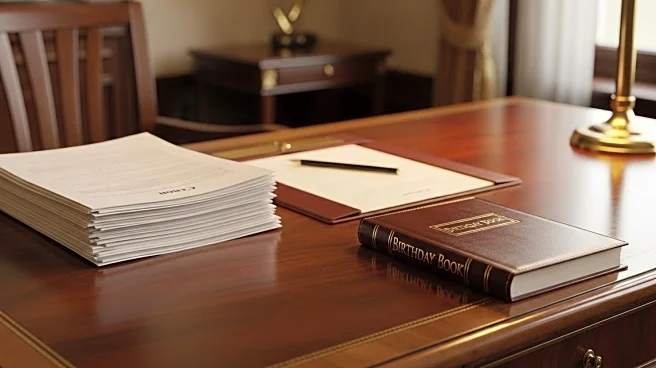What's Happening?
The GOP-led House Oversight Committee has obtained documents from the estate of Jeffrey Epstein, including a 'birthday book'. This development is part of ongoing investigations into Epstein's activities and associations. The committee, which is responsible for overseeing government operations and ensuring accountability, is examining these documents to uncover potential connections and implications. Democrats on the committee have shared a photo they claim is a page from the book purportedly written by President Trump. The investigation into Epstein's estate continues to be a significant focus for lawmakers, as they seek to understand the extent of his network and influence.
Why It's Important?
The acquisition of these documents by the House Oversight Committee is crucial as it may provide new insights into Epstein's connections and activities. This could have significant implications for public figures and institutions potentially linked to Epstein. The investigation is part of broader efforts to address accountability and transparency in dealings with Epstein, whose activities have raised numerous legal and ethical questions. The involvement of President Trump, as suggested by the Democrats, adds a layer of political complexity to the investigation, potentially affecting public perception and political dynamics.
What's Next?
The committee is expected to continue its examination of the documents, which may lead to further revelations or actions. Stakeholders, including political leaders and public figures, may respond to any new information that emerges, potentially influencing public discourse and policy decisions. The investigation could also prompt additional inquiries or legislative measures aimed at addressing the issues uncovered.
Beyond the Headlines
The investigation into Epstein's estate documents highlights broader concerns about accountability and transparency in high-profile cases. It raises ethical questions about the influence of wealthy individuals and their networks on public policy and governance. The case may also lead to discussions about the legal frameworks governing estate investigations and the protection of privacy versus public interest.










